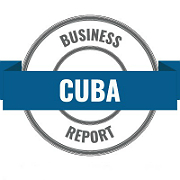Since approximately February 14th there has been somewhat of a disruption in services to Cuba via SMS text messages. One might have suspected Valentine’s Day and the abundance of messages of love flowing between Cuba and the rest of world that day, but this is not the case. The following offers a full explanation of what is happening. It appears that ETECSA, like any other corporation, is fighting back the fraudulent use of its servers which is costing the company about $6M US annually.
ETECSA has also filed a complaint with the international telecom security organization FIINA. None of the companies which are illegally using the telecom services have agreements with ETECSA. ETECSA has signed Direct Interconnection Agreements for international voice traffic with “39 of the world’s leading telecommunications operators, and roaming agreements with another 408 from 163 countries.” Apparently though, not with the particular company(s) in question.
As a background, this story has been circulating as far back as January 2010 and April 2011 when Cuban authorities began investigation of an individual who had set up an illegal telephone network in his home in Guanabacoa, according to the Cuban publication Juventud Rebelde.
BNAmericas also ran this story written by Wallace Porter of the news:
“… Companies that provide illicit telecom services use a device called a Simbox that allows the connection of four to 23 SIM cards, said Ramón Fernández, director of security at ETECSA. The improvised phone exchange then interconnects using the Nauta, the internet server of state entities, or other links to communicate with equipment outside the country through the internet, reported daily Juventud Rebelde.
The most common form of fraud, according to Jorge Sacre, head of ETECSA’s anti-fraud department, occurs in incoming international calls and SMS. ETECSA’s international SMS service costs US$0.60 per message and long distance calls cost US$1. Conversely, a text message sent through illegal telcos costs US$0.09, the local rate.
Although ETECSA acknowledges that the price of its long distance services are high, the state-run company previously explained that its cost structure must remain because its infrastructure cannot support fast-growing demand.
The Cuban telco sent a report to international telecom security organization FIINA denouncing the mechanisms illegal companies use to bypass the country’s official networks, stressing that “none have agreements with ETECSA, sole authorized operator of telecommunication services in Cuba.”
The company under investigation released the following statement to users on February 24, 2017:
“During the evening yesterday, the service of SMS to CUBA has begun to have problems again. Although our suppliers assure us that deliveries are satisfactory and there is only a small delay of 15 to 20 minutes in the same, we have seen that a large number of the SMS to CUBA does not arrive, even when we have confirmation of reception in our system.
Apparently, there have been changes in the reception of SMS of ETECSA algorithms that prevent that many of these SMS are received by the user finally, so we can say that the service is running, but only partially. Some messages reach their destination and others fail.
In Cuballama we are working to stabilize the service and ensure the satisfactory delivery of 100%. From the day today, Friday, February 24 (hour of Cuba), all the SMS to CUBA will be free, both from our website and from our mobile application for Iphone and Android, until we can ensure that the SMS to CUBA function optimally.
In addition, we remind you that service reply SMS from CUBA, has not undergone any involvement so far.”
News Source: BNAmericas, Juventud Rebelde and Diario de Cuba

From our staff writers and editors.










